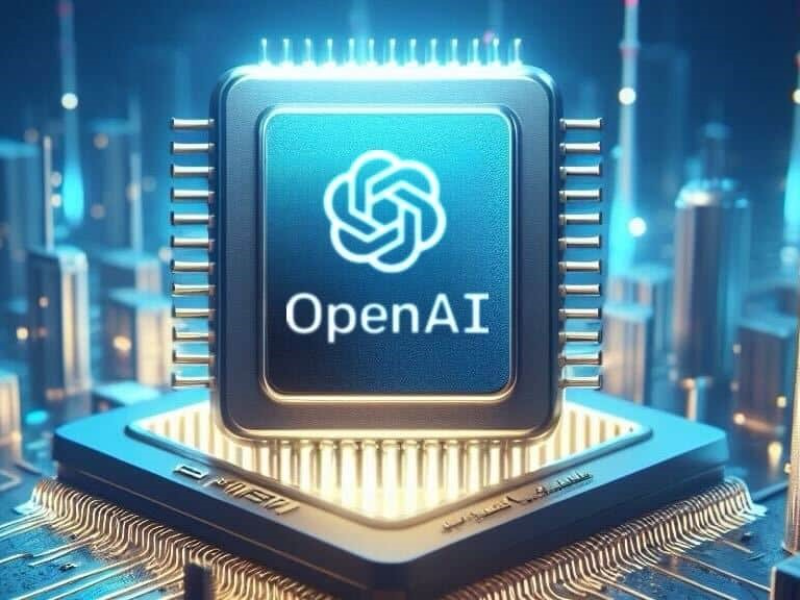- OpenAI is in talks with Broadcom to create a new AI chip, aiming to tackle the shortage of graphic processing units, Information reported.
- Open AI is hiring ex-Google staff who produced Google’s own AI chip, the TPU and is set to develop its own AI server chips.
OUR TAKE
OpenAI is working closely with Broadcom and other chip design companies to develop a new AI chip. This initiative marks a significant step in the hardware space for OpenAI, aiming to break through the current bottleneck in the supply of expensive graphics processing units, reduce its reliance on Nvidia, and further drive its innovation in AI model development.
–Elodie Qian, BTW reporter
What happened
OpenAI is engaged in discussions with Broadcom and other chip designers to develop a cutting-edge AI chip, the Information reported on Thursday. This initiative, as reported by The Information on Thursday, is aimed at addressing the shortage of high-cost graphic processing units (GPUs) that are integral to the development of AI models such as ChatGPT, GPT-4, and DALL-E3.
The company, backed by Microsoft, is hiring former Google employees who produced Google’s own AI chip, the tensor processing unit (TPU). This move indicates OpenAI’s intent to venture into the manufacturing of AI server chips, a decision that has been confirmed by three individuals involved in the project.
A spokesperson for OpenAI stated, “We are continuously engaging with industry and government stakeholders to enhance access to the necessary infrastructure, ensuring that the benefits of AI are accessible to all.” This statement underscores the company’s commitment to making AI technology more widely available and its dedication to overcoming current limitations in the field.
Also read: OpenAI Contemplates In-House Chip Production Amid Global Shortages
Also read: AI chips: What they are and how they work
Also read: How Nvidia dominates the AI chip market
Why it’s important
Earlier this year, Bloomberg News reported plans by OpenAI’s CEO, Sam Altman, to raise billions of dollars for the establishment of a network of factories focused on semiconductor manufacturing. In February, Altman reportedly intending to raise a staggering $7 trillion for a new chip venture.
It’s unclear whether Altman and OpenAI are still interested in building a new chip factory. Considering that the $7 trillion amount reportedly being sought is perhaps too much for OpenAI, it’s much more practical and cheaper to opt for a partnership with an existing company like Broadcom.
While NVIDIA has been the biggest beneficiary of AI spending, Broadcom has also made rapid progress in the market. Broadcom sells a range of components to data centre operators who are rapidly expanding their facilities to accommodate AI services. Broadcom CEO Hock Tan said Broadcom’s AI sales will exceed $11 billion by fiscal 2024.
OpenAI’s move also reveals its ambitions in the AI chip space. Currently, Nvidia’s share of the AI chip market is about 70% to 95%, and OpenAI’s collaboration with Broadcom to develop a new chip or open its own chip factory can avoid almost total dependence on Nvidia for AI-processing chips, thus enhancing market competitiveness.

